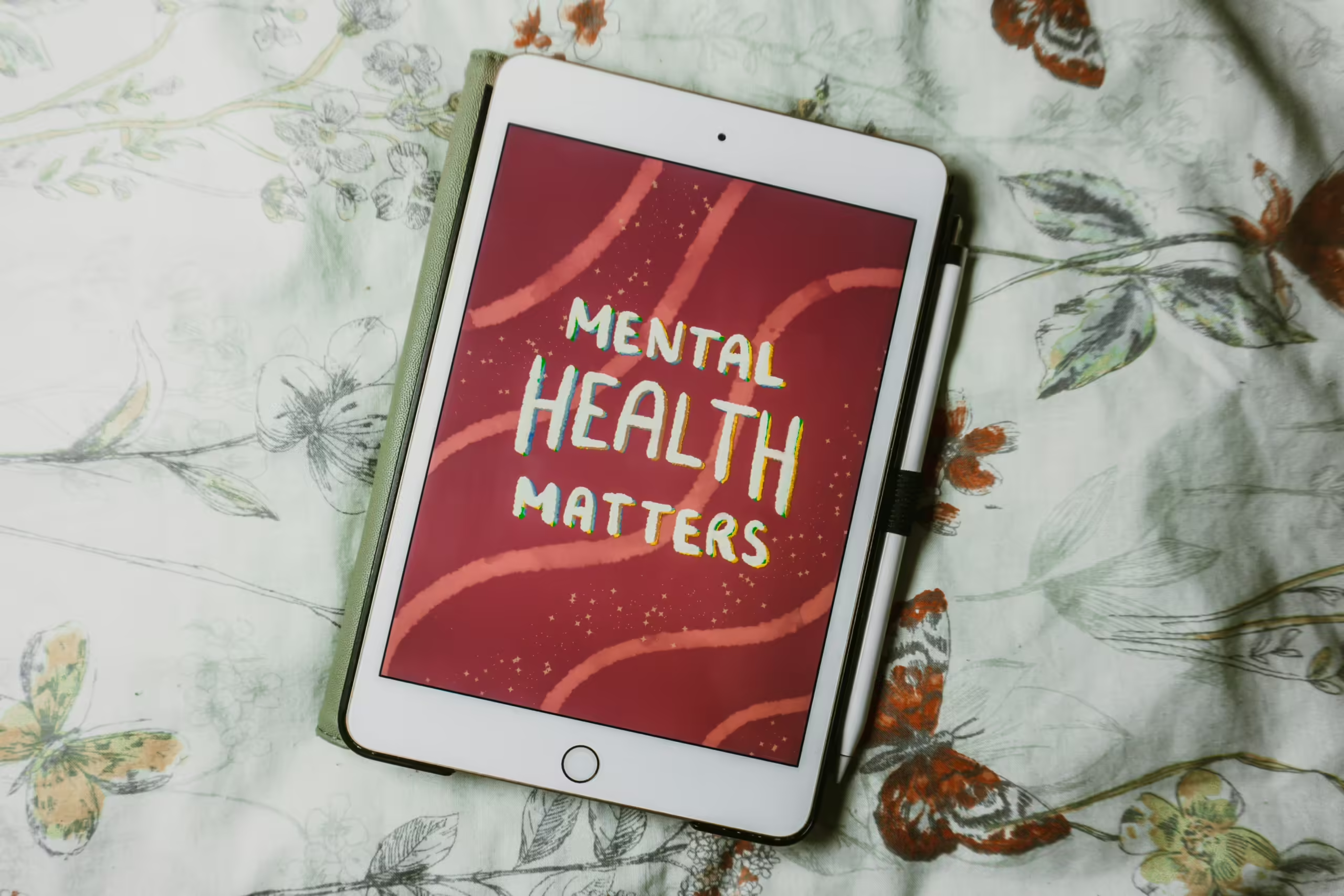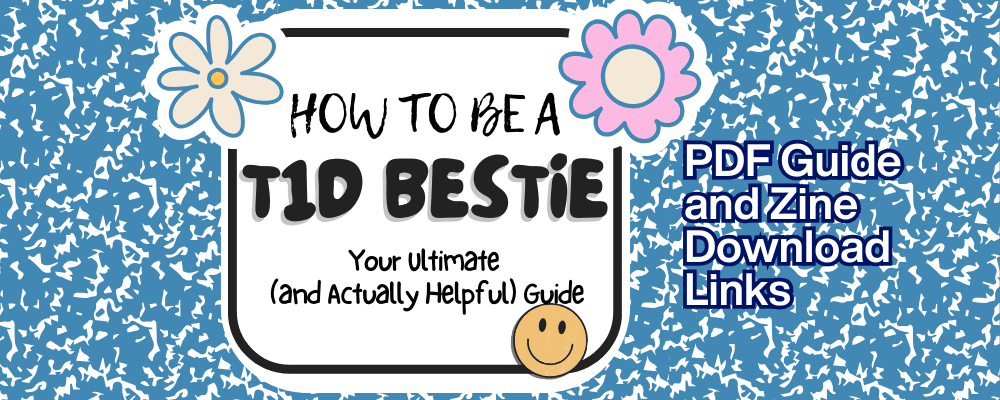Type 1 Diabetes management goes way beyond checking blood sugars and carbohydrate-counting. It also involves understanding how factors like exercise, stress, sleep, and hormones affect your health. As we start the new year, it is the perfect time to focus on having a positive mindset for your mental and physical well-being. This blog will delve into the diabetes and mental health connection and provide practical tools for stress management and emotional support.
The Connection Between Diabetes and Mental Health
Living with type 1 diabetes (T1D) can significantly impact your mental health. The constant monitoring of blood sugars, meal planning and physical activity can be overwhelming. Research shows people with T1D are more likely to experience mental health challenges like anxiety, depression and diabetes distress – a condition where you feel overwhelmed by the daily demands of managing the disease.
But mental health challenges can also impact T1D management. Stress and emotional struggles can lead to behaviors like missing insulin dosages, overeating sugary foods or not checking blood sugars, which can worsen T1D control. It’s a two way street: diabetes affects mental health and mental health affects diabetes.
Knowing this is the first step to creating a holistic approach to care that addresses both.
Starting the Year with a Positive Mindset
The beginning of the year is an excellent time to reassess priorities and establish habits that promote positivity and balance. A positive mindset doesn’t mean ignoring challenges; it means developing resilience and focusing on small, manageable actions that contribute to well-being.
Here are a few strategies to help foster a positive mindset:
- Practice Gratitude: Take a moment each day to acknowledge something you’re grateful for. Gratitude has been shown to improve overall mood and reduce stress.
- Focus on Progress, Not Perfection: Managing diabetes is a lifelong process. Celebrate small wins, like maintaining consistent blood sugar levels for a week or trying a new T1D-friendly recipe.
- Set Realistic Goals: Avoid overwhelming yourself with unrealistic expectations. Instead, break your goals into smaller, achievable steps.
By approaching the year with intention and self-compassion, you can create a foundation for improved mental and physical health.
Stress Management Tools for People with Diabetes
Managing stress is critical for people with diabetes. Stress can cause blood sugar levels to rise due to the release of stress hormones like cortisol. Incorporating stress management techniques into your daily routine can make a significant difference.
- Mindfulness and Meditation: Mindfulness practices, such as deep breathing exercises or meditation, can help calm the mind and reduce stress. Even five minutes a day can make a difference.
- Physical Activity: Exercise isn’t just good for physical health; it also boosts mental health by releasing endorphins. Find an activity you enjoy, like walking, yoga, or dancing, and make it a regular part of your routine.
- Relaxation Techniques: Progressive muscle relaxation or listening to calming music can help lower stress levels and improve focus.
These tools are accessible, practical, and effective in reducing stress and promoting emotional balance.
Emotional Support Resources
No one should navigate the challenges of diabetes and mental health alone. Building a support system is vital for emotional well-being.
- Family and Friends: Share your feelings with trusted loved ones. Sometimes, just talking about your experiences can provide relief.
- Support Groups: Joining a diabetes support group can help you connect with others who understand your journey. Sharing tips, challenges, and successes with peers can be incredibly empowering.
- Professional Help: If you’re struggling with depression, anxiety, or diabetes distress, consider seeking professional help. Therapists, counselors, or psychologists specializing in diabetes can offer valuable strategies and insights.
Organizations like Diabetes Research Connection (DRC) play a critical role in advancing research that explores the emotional and psychological aspects of T1D care. DRC supports studies aimed at improving mental health resources and strategies for people living with T1D. Their commitment to this vital area of research provides hope and practical tools for the diabetes community.
Creating a Personalized Plan for Mental and Physical Health
Combining diabetes management with mental health care requires a thoughtful, personalized approach. Here’s how you can create a plan that works for you:
- Identify Your Triggers: Determine situations or factors that cause stress or anxiety and develop strategies to manage them effectively.
- Set Routine Check-Ins: Regularly assess your mental and physical health. Journaling can help track patterns and identify areas for improvement.
- Integrate Self-Care into Your Day: Dedicate time to activities that bring you joy, whether it’s reading, gardening, or spending time with pets.
- Stay Informed: Keep up with the latest research and resources from organizations like Diabetes Research Connection to learn about new ways to enhance your well-being.
The Role of Professional Support
Professional support is a cornerstone of effective T1D and mental health care. If you find it challenging to manage your mental health independently, don’t hesitate to seek help.
- A diabetes educator can provide tailored advice on managing the disease.
- Therapists or counselors can guide you through coping strategies for stress, anxiety, or depression.
- Support from innovative organizations like Diabetes Research Connection ensures that future generations have access to cutting-edge tools and treatments that address the emotional challenges of living with T1D.
Embrace the Year Ahead with Strength and Positivity
As you start the new year remember managing T1D and mental health go hand in hand. By having a positive mindset, using stress management techniques and getting emotional support you can live better.
Organizations like Diabetes Research Connection are your partners in this journey, funding research to help us understand diabetes and mental health. With the right resources, tools and mindset you can face the year ahead with courage, resilience and hope.Take charge of your mental and physical well-being this year by prioritizing small, meaningful steps toward a healthier you. If you’re interested in supporting DRC’s research projects or contributing through a donation, join us in advancing a brighter future for everyone living with type 1 diabetes.




